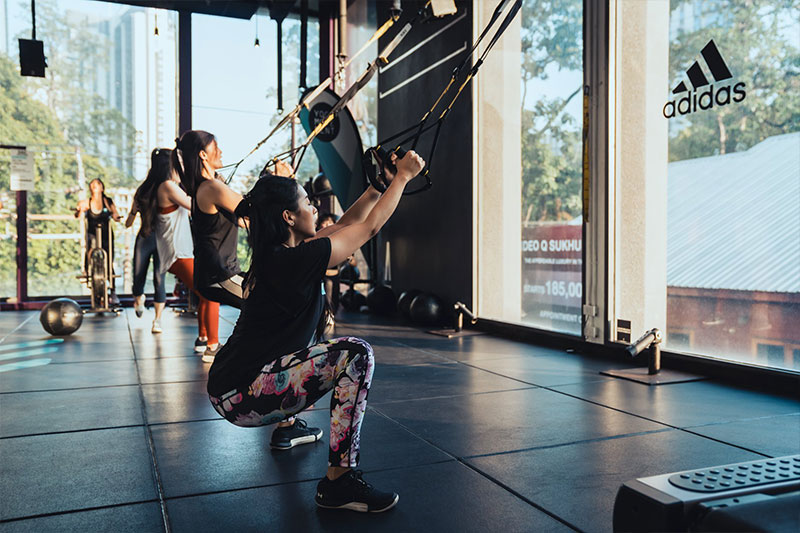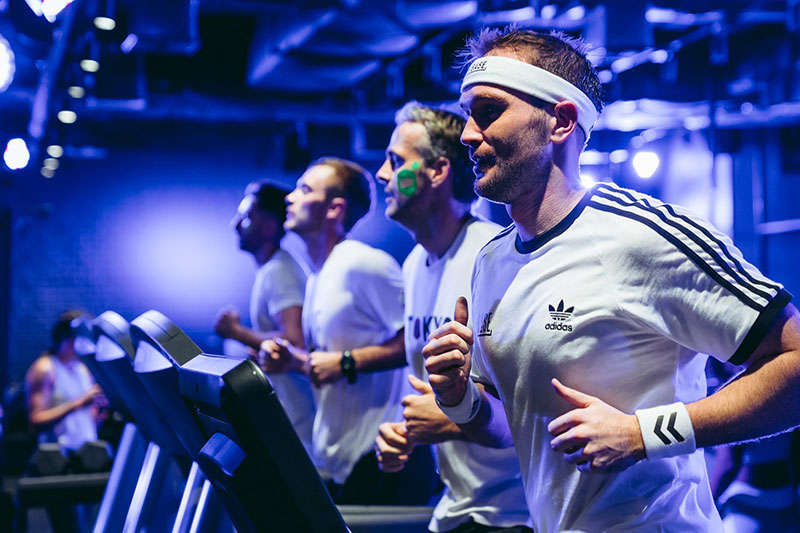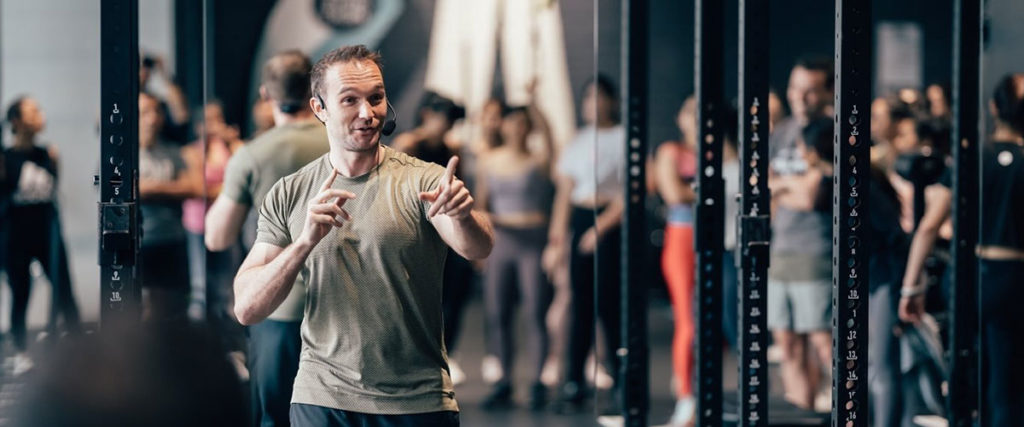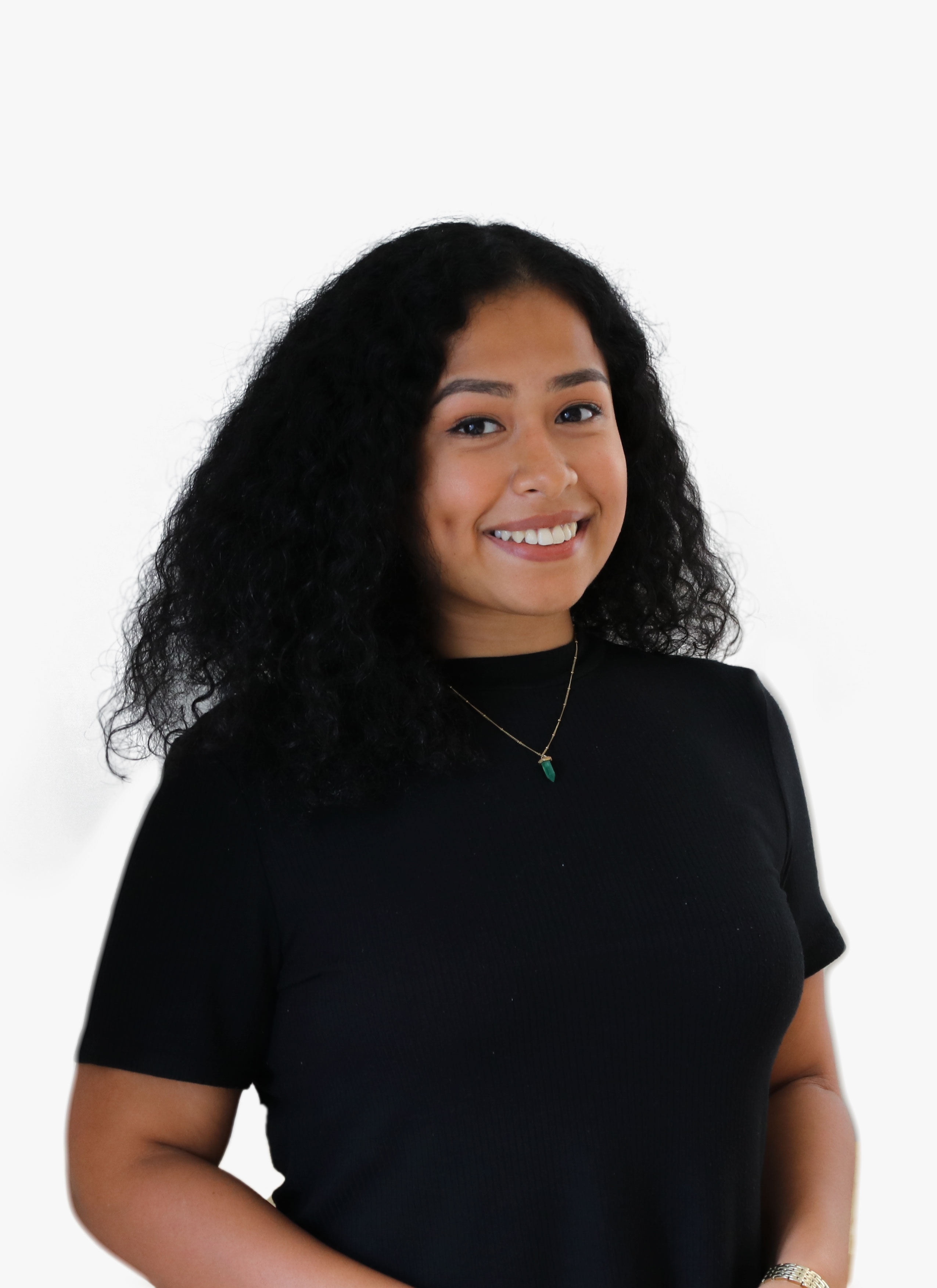BASE was voted Asia’s ‘Gym of the Year’ in its first two years of business. We speak to founder Jack Thomas, the man behind the studio that’s changing the fitness landscape in Asia for the better.
When Jack Thomas first arrived in Thailand 17 years ago, he was going from a corporate job in the UK to the uncharted waters of entrepreneurship. What set Jack apart, however, was his foresight to identify a gap in Thailand’s fitness market – and expertly fill that gap with a meticulously executed vision. Choosing to leave his life back in England, Jack traded in his suits for activewear and has since turned that vision into reality.
Today, he’s the CEO and founder of BASE, an Adidas-sponsored, Bangkok-based, high-quality chain of fitness boutiques that earned the title of Asia’s ‘Gym of the Year’ just two years after setting up shop. We sat down with the fitness entrepreneur and host of the insightful business-advice podcast, Fitness Business Asia, to get a play-by-play of the obstacles he faced on his way to the top of Asia’s burgeoning fitness industry, and what he’s learned in the process.
What brought you to Thailand, and what made you decide to stay?
When I first got to Thailand, I was teaching for a while, which was all a part of the travel adventure. Later on, I set up a clothing export business, and that started doing well quite quickly. But then the economic crisis happened in 2008 and the business got hit very hard. By then, I’d lost my passion for it. There was this moment where I was shopping in the markets with one of the suppliers, which is something I used to really love doing, but at the time, I just thought, ‘I’d rather be anywhere else in the world but here, right now.’
I needed a change in direction, so that was a real crossroads for me. I was lost, I was training myself in one of the gyms here in Bangkok, and just took note of the poor standard of personal training here. It dawned on me that there’s an opportunity here for high-end, premium personal training. So, I made a decision to continue in Thailand and to basically make a career pivot.
I went back to the UK and got my personal training qualification, came back to Thailand, and started working for a small studio. A year later, we opened what was one of the very first boutique studios in Bangkok, offering high-end personal training and group classes, and it really took off.
I was at that company for about five years, and during that time went from coach to manager to managing director. During those five years, I felt like I’d developed and grown enough to launch my own brand. BASE has been open for four years, now with three locations. We’ve won numerous awards and things are going well, and we’ve got big plans for the future.

Looking back, what do you attribute your business’s success to?
Firstly, I think the decision to focus on marketing in-house was the right move. We couldn’t really find a good agency or freelancer when we opened up in 2016, so we decided to do it all in-house. We probably suffered from that decision for the first six months because we didn’t really know what we were doing; we were essentially feeling around in the dark. But once we got a grip on what it meant to market a gym – once we started to understand branding – we really began to see some solid traction and the advantage to be had. We started to understand these processes, and have a clear idea of what our brand is. Now we have a marketing team of three and we’ve definitely seen the benefits of bringing that in-house.
The next would be the focus I put on expanding my network as much as possible – that definitely played a big part in the success we’ve seen. The Fitness Business Asia podcast has been a great networking tool. I get to reach out to pretty much anyone I want to have a conversation with and, as the podcast has grown, it’s become easier to reach out to bigger names, learn from them, and share that with my team as well.
The last would be adopting the mindset of always improving and always developing yourself. Because as your company grows and develops, you might not be the right person to run your company in a year or two years time. I didn’t really know much about marketing or sales, or what it meant to create a strong powerful brand. I just realised about a year ago that I really didn’t know anything at all and came to the conclusion that if we want this company to grow past three or four branches and expand internationally, I need to be on this journey of forever improving and forever developing myself – because, at the moment, I’m not the person to run a fitness chain of 10 or 20 gyms. I need to make sure that I grow and develop with the company so that I become the person to lead it down the line.
What were some of the challenges you faced getting to this point?
Something that we’ve learned is the importance of standard operating procedures, which we lacked in the beginning. When we went from one to two branches, you could start seeing gaps emerge. So we sat down to develop a ‘Standard Operating Procedures Manual’, as if we had 10 branches. I would highly recommend doing that from the very beginning. Get your standard operating procedures down from day one. For everything you do, write down exactly how it’s done so that it can be easily taught and passed onto the next person.
As a young boutique gym, landing an Adidas Partnership is quite the achievement. Could you tell us how that came about?
One of my business partners and strategic investors got us a meeting with Adidas. So, we went in and presented the vision, the dream, and what we wanted to do. Despite us being a brand new studio, they saw enough and were prepared to take a risk on us. I think this is due to the strength of the relationship that they already had with my business partner, and the experience that I had in the industry. We already had CGI of how the studio would look, as well as brand guidelines to make it look slick and professional – we did what we could to sell the dream. Adidas, fortunately, bought into it and we’ve worked with them since day one.

Is there anything you would improve or change about attitudes in the fitness industry?
I think the biggest thing that we get wrong is underestimating the challenges of running a fitness business. We see this every day across the world, and certainly in Asia, as well. For example, personal trainers often think that once a client base is established, they can set up their own gym, but being a coach and being a business owner is two completely different skill sets. After six to maybe 18 months at most, you won’t really want to be coaching much. You’ll need to develop completely different skills and build up the business marketing and sales journey. I had to recruit to go through the financials of the business and to raise investment.
There are so many elements that actually had nothing to do with coaching. That transition is massively underestimated. To summarise, if I’d change anything, it’d be not taking the business side seriously enough, and just massively underestimating by thinking “because I’m a great yoga instructor, I will automatically have a great yoga business.” It really doesn’t work like that.
I read online that you’re now incorporating some new tech. Could you speak a little about the app, and what the goal is with this new platform?
We’re bringing in an element of recording and tracking our clients’ results, and we call the web-based app BASEline. We’ve created our own technology, and it’s our first investment into the tech side of things. Now, our members get emails at the end of group workouts about their scores and how they’ve done. We’re working on a proper mobile application, too. With the web-based app, clients can log in and see all of their stats for the day. We’re also going to include a feature that allows you to compete against your friends.
I haven’t seen anyone in New York, London, or any of the other top players in the market doing what we’re doing with BASEline, so it really positions us very highly and allows us to go into more advanced fitness markets in Asia.
What tips do you have for someone trying to make it big in the fitness industry?
Coaches are extremely disciplined and organised when it comes to their training, but they don’t apply that same discipline and organisation to their business. They get up early and train, they’re very organised with their clients, but then when it comes to running a business, again, they seem to fail to understand sales and marketing.
One of my big goals from day one was to create a gym that would do well, even if you put it somewhere like Hong Kong. I went to Hong Kong, New York, London – all of the big fitness markets in the world to use them as our benchmark. I went to all the top gyms – not to copy, but to take inspiration from what they were doing. We went through their whole customer journey to really analyse everything that they do, and all the little ways in which they create this great experience. They really push their brands forward. So take inspiration from the giants in your industry, and learn from them.
Keen to learn more about what it takes to become an industry giant? Jack Thomas will be at the Hive Thonglor at 6:00pm on 5 August for The Experience Series, a fireside chat series featuring Asia Pacific’s brightest entrepreneurs, to share his wealth of experience. We’ll see you there.
Related Articles
ClassPass: How A Future Billion-Dollar Enterprise Succeeded
Female Fitness Warrior Talks Strength, Resilience & Career After Battling Cancer
From Gymnastics to Cirque, This Gym Will Help You Achieve the Impossible





